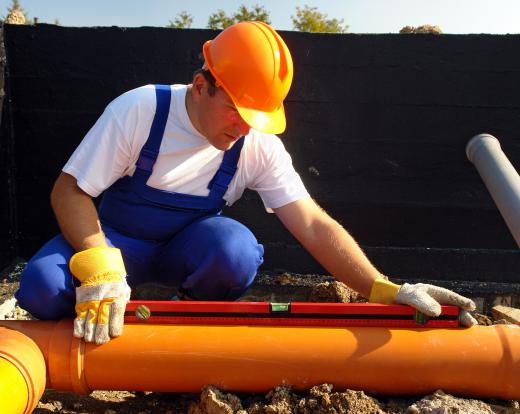A pipefitter salary is impacted by four primary areas: economic conditions, experience, education, and local demand. A pipefitter is a skilled tradesperson responsible for creating, assembling, installing, and maintaining mechanical pipe systems. It is important to note that a pipefitter is quite different from a plumber. These trades both work with pipes and liquid systems, but each job has very different tasks and requirements.
Pipefitters work on projects for local government agencies, commercial property owners, and manufacturing plants. There are two types of projects that require pipefitters: long term and maintenance work. New construction projects tend to be rather large-scale, long-term projects with multimillion dollar budgets. These projects are contingent upon the current economic conditions.

In an economic downturn, sales revenue decreases, and most organizations and governments reduce spending to the lowest levels possible. Pipefitter salary levels are often higher for construction projects than for renovations. Consistency, productivity, and efficiency are all improved when the same tradespeople are used for an entire project. Bonus payments for longer hours and weekend work are common, especially for projects on a strict deadline.

The greater level of experience, the higher a pipefitter salary level. In the skilled trades, an experienced pipefitter can perform tasks at twice the speed of an apprentice, and at a consistently high level of quality. Many firms assign extra responsibilities and a higher pipefitter salary to candidates with many years of experience.
There are two levels of education for pipefitters: basic and master certification. The basic certification is completed during a standard apprenticeship and is often completed together with two or three years of community college training. Many states require pipefitters to complete a licensing program. Master certificate programs are available part time and include project management, training apprentices, and related skills.
The salary level for a certified master pipefitter is considerable higher than for someone with basic pipefitting certification. The benefit of a master pipefitter from the employer's perspective is the firm can hire apprentice workers to complete standard tasks. This additional expertise is well worth the higher salary.
As with all commodities, supply and demand have a definite impact on the level of pipefitter salary offered in a specific region. Firms located in cities with a high level of unemployed pipefitters are able to hire skilled staff at a lower salary than locations where pipefitters are hard to find. In these cities, firms need to offer a higher salary to entice pipefitters.
